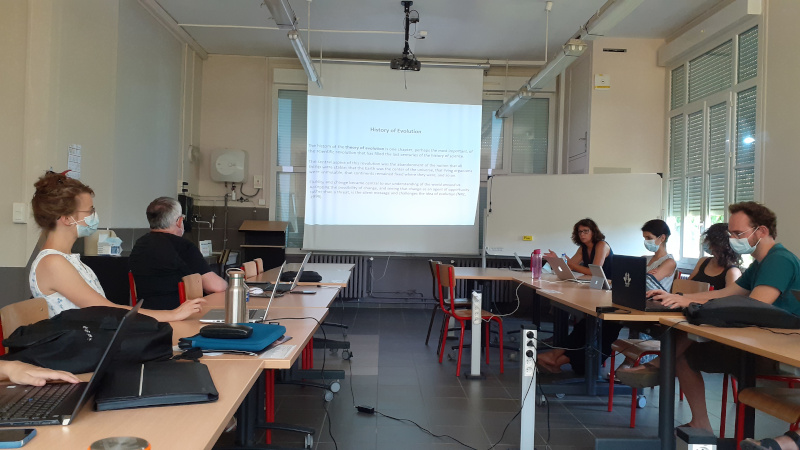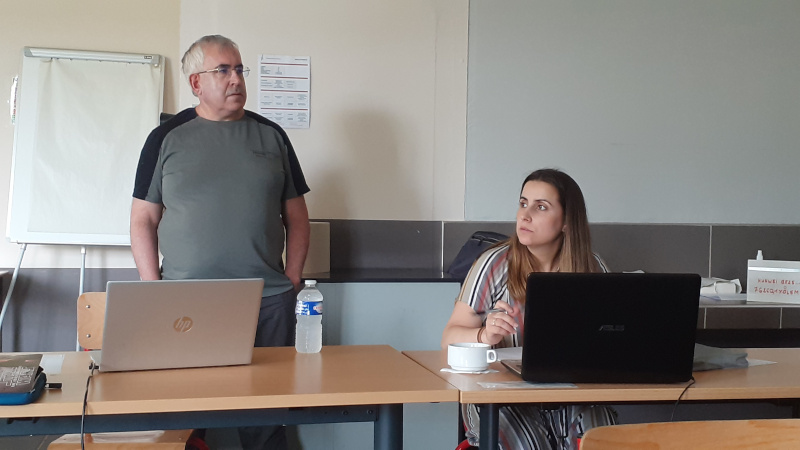
Erasmus+ Incoming

Incoming Students
Dear prospective Erasmus+ student, if you are interested in coming to the Instituto Europeu de Estudos Superiores for an Erasmus+ period of studies, your home university must have an active Erasmus+ Inter-institutional Agreement with the corresponding academic department in IEES and have nominated you for a place in good time for the application deadline.
Check the existing agreements between your home university and IEES by contacting your International Relations Office.
Your home university shall nominate you via our online nomination form (ligação google form, por enviar).
Deadlines for Nomination: Autumn Term/ Full Academic Year – May 15th, Spring Term – November 15th.
Application
Once you have been nominated, you receive an e-mail from us inviting you to proceed with your registry and application via our application system (ligação https://inforestudante.iees.pt/nonio/security/login.do)
Application System Guidelines
Your application must include:
- Erasmus+ Student’s Application Form
- Learning Agreement – Before Mobility (OLA) (ligação https://learning-agreement.eu/)– Check the Guidelines carefully
- Copy of your European Health Insurance Card or a Private Insurance
- Copy of Passport or ID card
Online Learning Agreement Guidelines
Application deadlines: Autumn Term/ Full Academic Year – June 15th, Spring Term – November 30th.
Course Catalogue
Erasmus+ Departmental Coordinators
Primary Education
Prof. Rosa Martins, Ph.D, gab. 6, tel.: 253 509 000, ext.206, e-mail: rosa.martins@iees.pt
Social Education
Prof. Ana Noronha, gab.4, tel.: 253 509 000, ext.204, e-mail: ana.noronha@iees.pt
Sports
Prof. Inês Gonçalves, Ph.D, gab.12, tel.: 253 509 000, ext.312, e-mail: inesgoncalves@iees.pt
Tourism
Prof. José Luís Braga, Ph.D, tel.: 253 509 000, e-mail: jose.braga@iees.pt
Technologies and Information Systems Management
Prof. Paulo Costa, Ph.D, gab.01, tel.: 253 509 000, ext.101, e-mail: paulo.costa@iees.pt
Gestão
Prof. Margarida Rodrigues, Ph.D, tel.: 253 509 000, e-mail: margarida.rodrigues@iees.pt
Master in Business Administration
Prof. Laurentino Guimarães, Ph.D, gab.10, tel.: 253 509 000, ext.110, e-mail: laurentino. guimaraes@iees.pt
Incoming Teaching and Non-teaching Staff
We are pleased to welcome international colleagues for purpose of teaching (STA) usually for up to one week, requiring a minimum of 8 hours of teaching. The existence of the Erasmus+ inter-institutional agreement is a must.
The member of staff and the relevant academic department at IEES must mutually agree on a teaching programme before the visit takes place. The member of staff can arrange this directly with the Erasmus+ Departmental Coordinator in the respective academic department. Please check the list of the Erasmus+ Departmental Coordinators. (link para Erasmus+ Departmental Coordinators)
We welcome colleagues for training visits (STT) usually for up to one week for purposes of job- shadowing, observation, transfer of knowledge and good practice, learning from shared experience, acquiring practical skills and discovering new ideas for teaching and learning. No Erasmus+ inter-institutional agreement needs to be in place.
In order to schedule your training visit, please contact our International Relations Department: internacional@iees.pt
Projects

European Co-construction of a Science Webcomics Series: «Bombastics»
Source of Funding
ERASMUS+ Programme, KA220-SCH – Cooperation partnerships in school education
Reference:
2021-1-FR01-KA220-SCH-000030110
Abstract
The «Bombastics» is a project that brings together researchers in Sciences and Education along with artists, and aims to contribute to the environmental awareness and empowerment of students in several European countries by creating eight episodes of webcomics and educational resources.
Consortium
Stimuli – Association Sciences BD Education( França) – instituição coordenadora, Université de Paris (França), Universite de Toulouse II – Jean Jaures(França), Universitaet Leipzig(Alemanha), Universidade de Lisboa(Portugal), Instituto Politecnico de Lisboa(Portugal), IESF-Instituto de Estudos Superiores de Fafe, Lda(Portugal), Universitat Autonoma Barcelona(Espanha), Zespół Szkół Urszulańskich w Poznaniu(Polónia), FCIENCIAS.ID – Associacão para a Investigacao e Desenvolvimento de Ciencias(Portugal), Fondation pour l’Education à la Science dans le sillage de La main à la pâte(França).
Researcher in charge
Joana Torres, teacher of Escola Superior de Educação de Fafe
Developement Period
01/02/2022 – 01/02/2025
Workshops
1st Workshop: 18.07.2022-22.07.2022, Fontainebleau, France
Portuguese, Spanish, French, Polish and German researchers participated in this workshop, allowing for a fruitful discussion and considerable progress in the development of the project.


